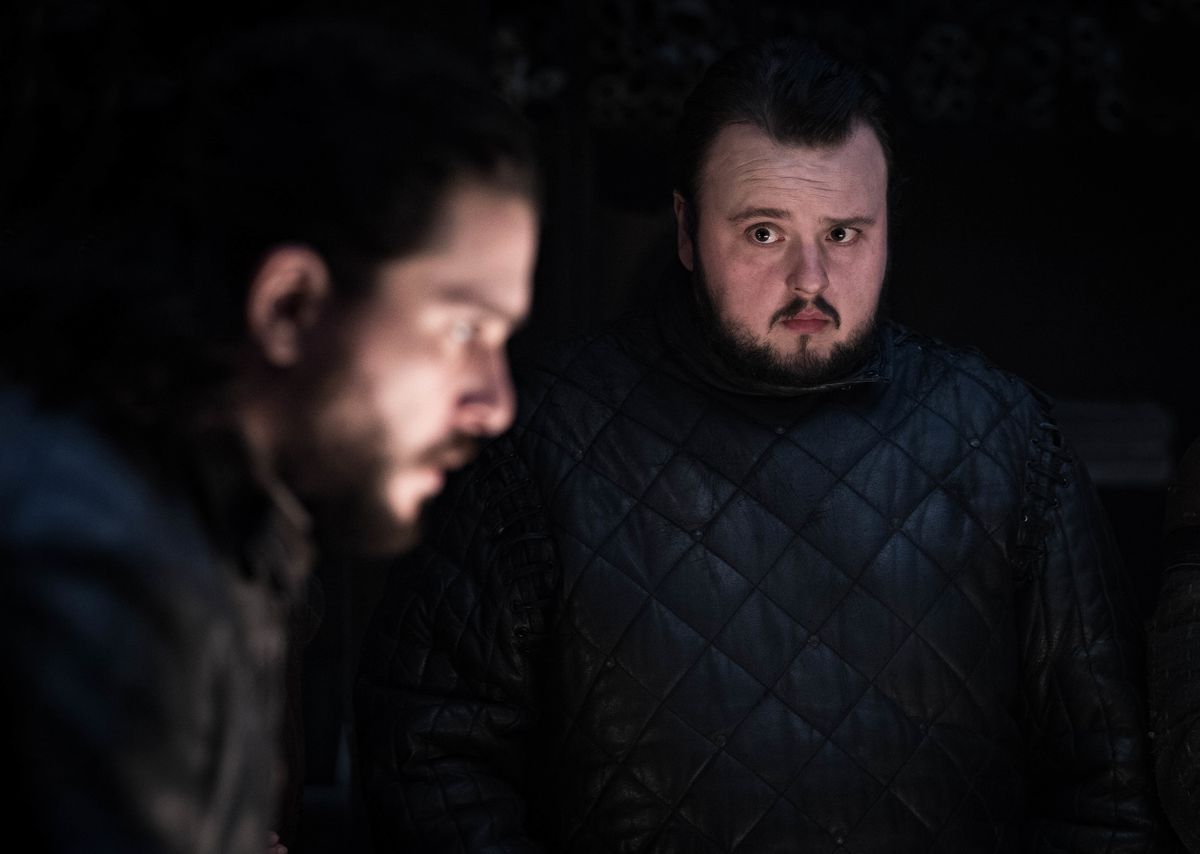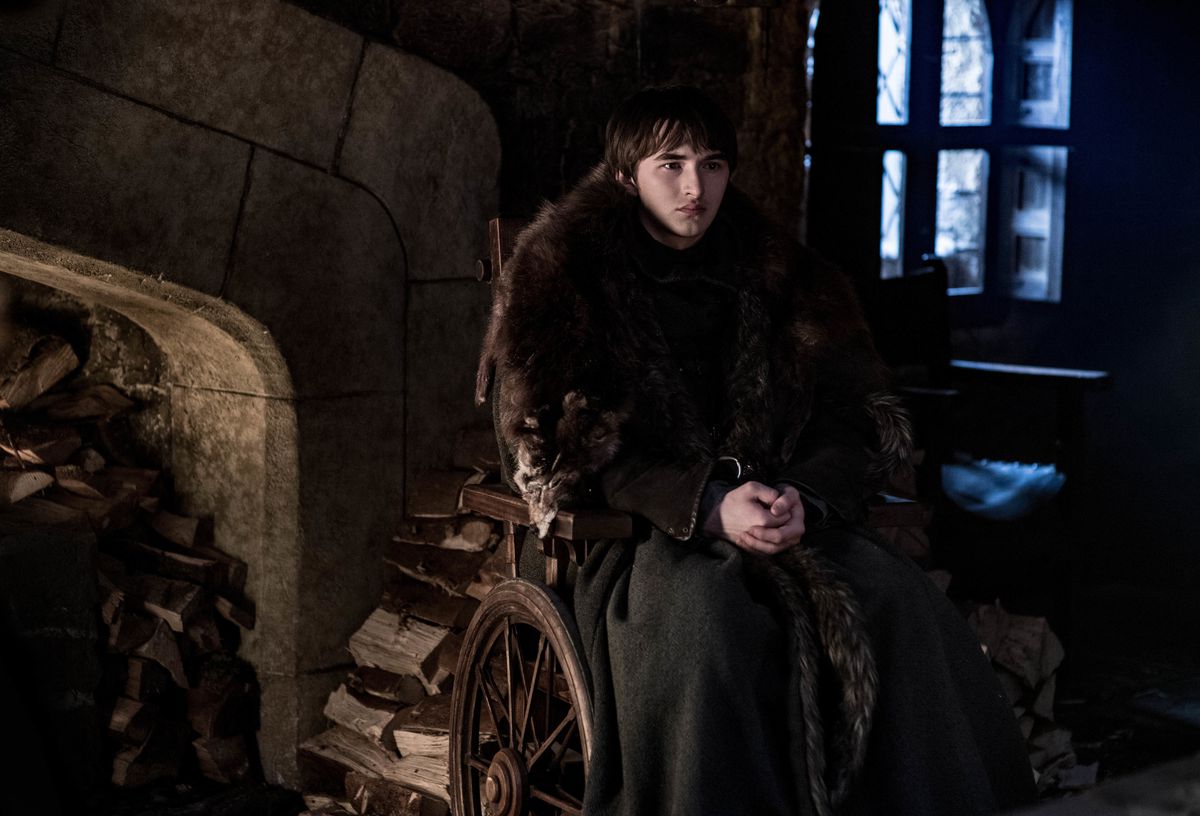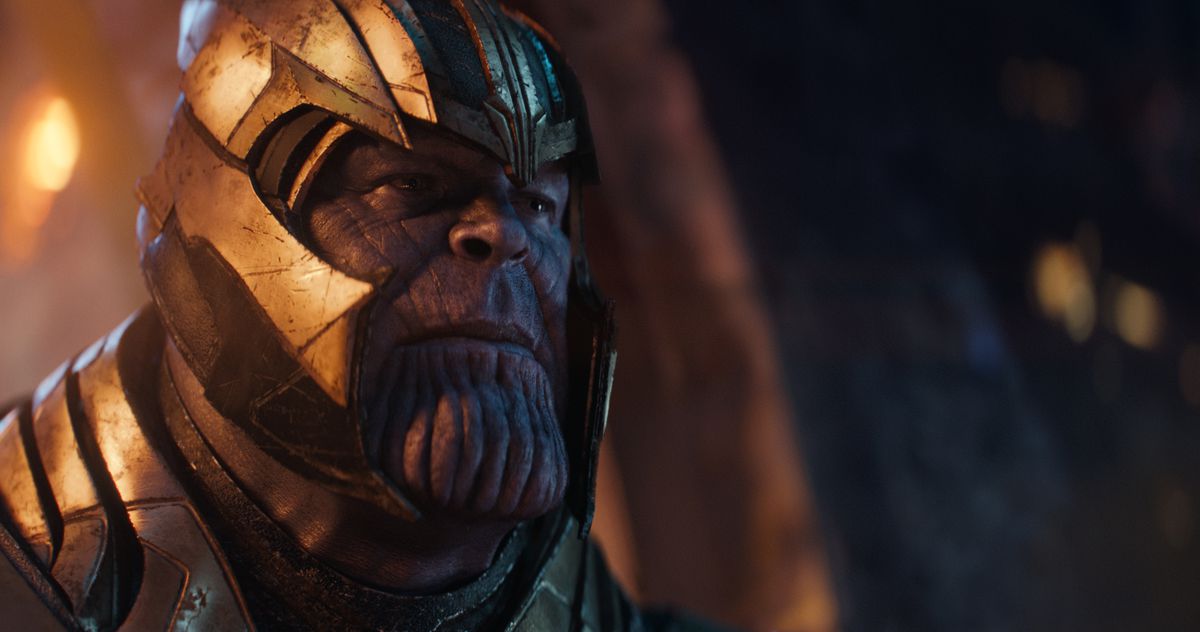Warning: spoilers ahead for season 8 of Game of Thrones and Avengers: Endgame.
The morning of Game of Thrones’ long-awaited Battle of Winterfell episode, “The Long Night,” Avengers: Endgame directors Joe and Anthony Russo tweeted a fan-made picture of the Night King and Thanos face-to-face, with the hashtag #WeWannaSeeThisFight. But the truth about the villains — two of the most significant in popular culture this decade and both coming to their biggest, death-filled clashes in one weekend — is that they have no reason to fight each other. Based on what we know about their goals, their fight is essentially the same.
For many seasons of Game of Thrones, the Night King mostly came across as a bastion of pure death. But during “A Knight of the Seven Kingdoms,” the episode prior to the big battle, a conversation between Bran Stark and Samwell Tarly added a more terrifying and specific dimension to him. “He wants to erase this world, and I am its memory,” Bran says. “That’s what death is, isn’t it?” Sam replies, “Forgetting… being forgotten. If we forget where we’ve been and what we’ve done, we’re not men anymore, just animals. Your memories don’t come from books; your stories aren’t just stories. If I wanted to erase the world of men, I’d start with you.”

Thanos didn’t start out on the same page as the Night King. He initially aimed to wipe out half the universe in order to make resources stretch further. In Avengers: Infinity War, he succeeded. At that point, he hadn’t started to focus on the world’s memory. After stabbing Tony Stark, he reminds Tony that half of humanity will survive the coming apocalypse, and adds, “I hope they remember you.”
But that hope is his biggest mistake. He allows heroes, of all people, to remember what he’s done. And as Avengers: Endgame unfolds, they can’t move on and can’t stop trying to undo what he’s done. So Thanos’ goals change. “As long as there are those that remember what was, there will always be those that are unable to accept what can be,” he says in Endgame. He changes his focus to total annihilation. He wants to end the universe entirely so he can create a new one from scratch — one with no memory of the blood upon which it was built and no memory of the Avengers.
The Night King and Thanos want to win their wars by convincing everyone that they never existed. Like Keyser Söze from The Usual Suspects, they’re devils, and the greatest trick they want to pull is convincing the world that they don’t exist. The Night King is able to pose such a threat in the first place precisely because the memory of him and the dead has faded in Westeros, along with the belief that winter is coming. The loss of cultural memory is a tremendous threat for Westeros as a new winter approaches.

With the ideas of cycles and repeating history, particularly its mistakes, Game of Thrones pushes beyond the borders of the television screen into the real world. From Holocaust deniers to people who refuse to believe in the United States’ Japanese internment camps and other homegrown atrocities, the real world has seen endless cycles of historical denial. Trying to erase history is a favorite trick for dictators, from regimes destroying older regimes’ cultural and religious texts to the Nazis plundering books, art, and artifacts to the way Mao’s Cultural Revolution systematically stamped out existing traditions and cultures. Game of Thrones is no stranger to modern political parallels, with Jon Snow’s season 7 finale speech about lies resonating in the Trump era and author George R.R. Martin setting up the entire series as a parable about climate change. It’s only natural for popular culture’s depictions of dictators and existential threats like Thanos and the Night King to assume the atmosphere of the times.
The way both villains represent the same kind of fight against cultural memory points to a connection in their DNA, one shared through longform storytelling. The Marvel Cinematic Universe — a series often compared to television, just on a much larger scale — will continue on from here, until the first three MCU phases — the Infinity Saga — eventually looks like season 1 of a much bigger story.
So how can the MCU both offer a sense of finality and start anew? Avengers: Endgame’s answer is by turning Thanos’ threat to erase the Avengers into a truly monstrous idea, a way of one-upping his previous massacre, and throwing the universe into vicious repetition. It’s a towering villain conceit, but in a way, it’s one superhero comics have embraced for decades. The MCU could’ve hit the reset button after Endgame, as superhero comics so often do to avoid over-complicated universes and to start over with new stories about the same old characters. DC seems to be doing the same with its movies, dropping the idea of a single continuity in order to recast major roles like Batman and Superman or to take some films out of the storyline, like the upcoming Joker.

Game of Thrones is different, not just because this is its final season, but because the show has always been more cynical than the MCU. The end is approaching for these characters, so while the theme of memory and reflection on their beginnings is natural, we’re unlikely to see a lasting answer about whether memory truly sticks and means anything in Westeros after the current battles. In fact, the show might even be setting up an ending that leaves memory in danger again. The final three episodes will deal with the squabbles for the throne that Jon Snow so often said didn’t really matter — squabbles Jon is now wrapped up in himself. Will the heroes of Westeros so quickly forget what united them?
The idea of memory puts the Game of Thrones prequel show in a new light, too, since it’s being designed to explore the key events in Westeros’ history that the current heroes knew nothing about as they faced the dead and repeated the cycle. There’s already an underlying tragedy to that prequel because audiences know that most of what they’ll see is later lost to time. The prequel show represents a period similar to the MCU’s Infinity Saga, with Game of Thrones representing the second go-around in the cycle.
But uncertainty about what lies ahead remains. Both Thanos and the Night King were defeated, their fights against memory snapped and stabbed away. It may be a long time before villains like them come around again, but time itself is a cycle that allows people to forget and villains like them to rise again and again.
https://www.theverge.com/2019/5/3/18528655/game-of-thrones-got-season-8-hbo-final-avengers-endgame-thanos-night-king-memory

